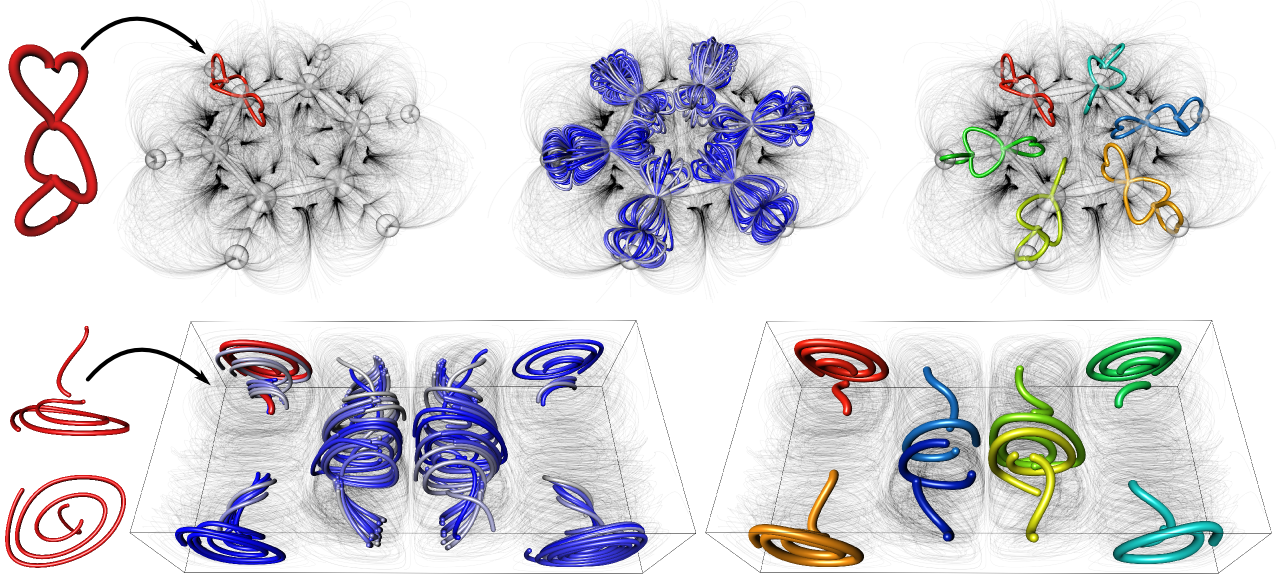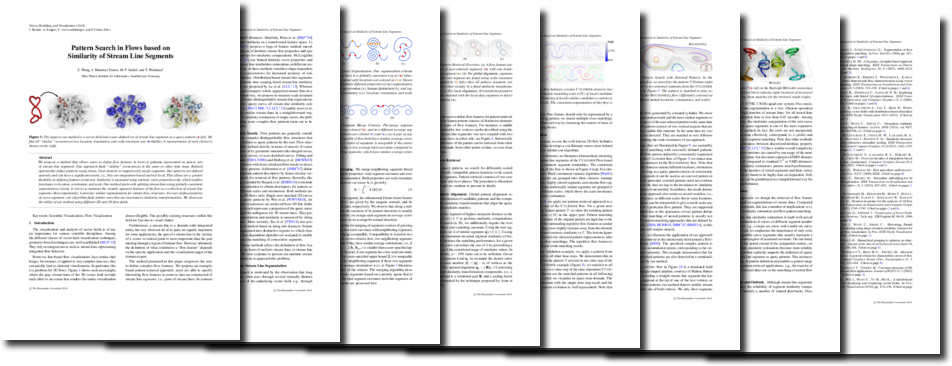Pattern Search in Flows based on Similarity of Stream Line Segments
Wang, Z. and Martinez Esturo, J. and Seidel, H.-P. and Weinkauf, T.

Abstract
We propose a method that allows users to define flow features in form of patterns represented as sparse sets of stream line segments. Our approach finds "similar" occurrences in the same or other time steps. Related approaches define patterns using dense, local stencils or support only single segments. Our patterns are defined sparsely and can have a significant extent, \ie, they are integration-based and not local. This allows for a greater flexibility in defining features of interest. Similarity is measured using intrinsic curve properties only, which enables invariance to location, orientation, and scale. Our method starts with splitting stream lines using globally-consistent segmentation criteria. It strives to maintain the visually apparent features of the flow as a collection of stream line segments. Most importantly, it provides similar segmentations for similar flow structures. For user-defined patterns of curve segments, our algorithm finds similar ones that are invariant to similarity transformations. We showcase the utility of our method using different 2D and 3D flow fields.
BibTeX
@inproceedings{Wang2014,
title = {Pattern Search in Flows based on Similarity of Stream Line Segments},
author = {Wang, Z. and {Martinez~Esturo}, J. and Seidel, {H.-P.} and Weinkauf, T.},
booktitle = {Proc. VMV},
pages = {(to appear)},
year = {2014},
publisher = {EG},
note = {(Best Paper Award)}
}